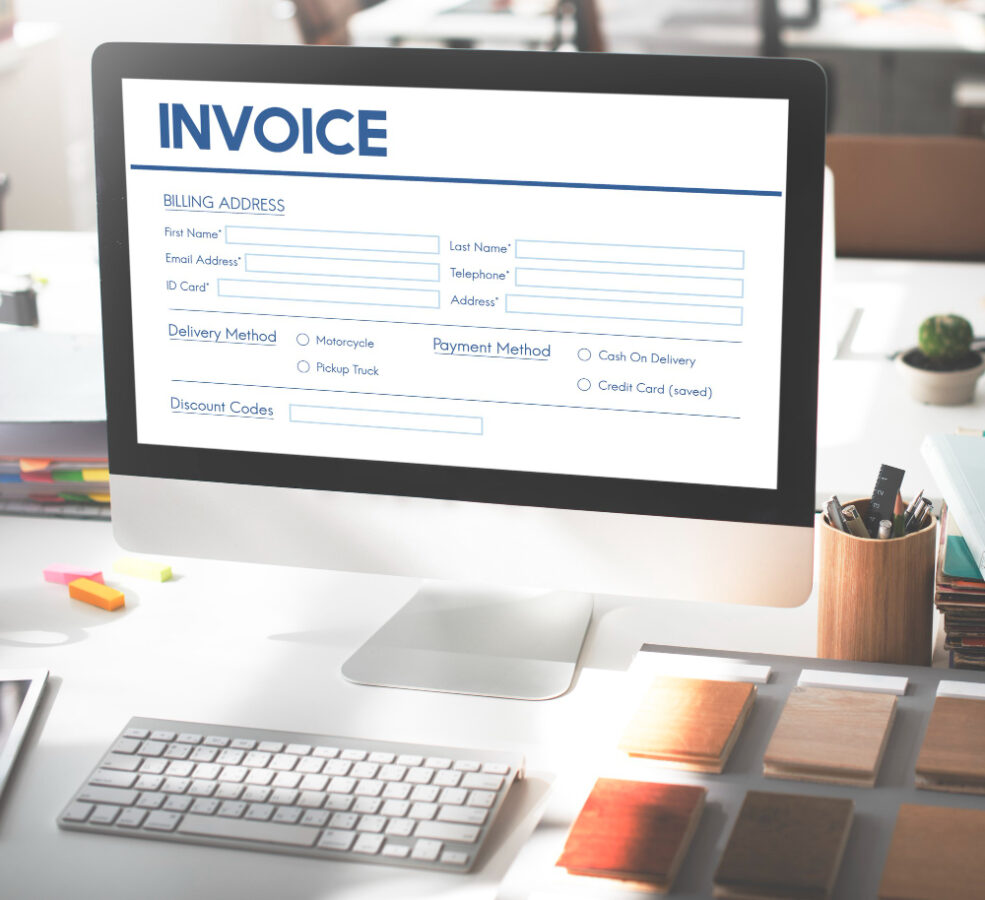Small unpaid bills are annoying, but they’re not usually going to sink your business. A few hundred dollars here and there might be frustrating, but you can usually absorb those losses. But when someone owes you tens of thousands or hundreds of thousands of dollars, that’s a whole different situation.
Large commercial debts can literally destroy businesses overnight. When a major client doesn’t pay a big invoice, it’s not just about the money – it affects your cash flow, your ability to pay your own bills, and sometimes even your ability to stay in business.
Why Big Debts Are Different Animals
When someone owes you a small amount, you might write it off as a business expense and move on. But when the amount is huge, writing it off isn’t an option. That money represents real value that your business needs to survive and grow.
Large debts often involve months or years of work. If a client owes you for a six-month project or a year’s worth of services, that represents a massive investment of time, materials, and labor. Losing that money means losing all that work with nothing to show for it.
The emotional impact hits different when big money is involved. It’s one thing to shrug off a small loss, but when someone owes you enough money to buy a house, it keeps you up at night. The stress affects your ability to focus on other parts of your business.
Big debts also create cash flow crises that small debts don’t. When someone owes you $5,000, you might be able to cover your expenses with other income. When someone owes you $50,000 or $500,000, you might not be able to make payroll or pay your suppliers.
Legal complications get more serious as debt amounts increase. Small debts might not be worth the cost of legal action, but large debts often require professional help to recover. This means additional costs and complexity that small business owners aren’t prepared for.
How Companies End Up With Massive Unpaid Bills
Most businesses don’t set out to create situations where they’re owed huge amounts of money. These problems usually develop gradually through seemingly reasonable business decisions that add up over time.
Long-term contracts create natural opportunities for large debts to accumulate. When you’re providing services over many months, invoices can pile up quickly if the client starts paying late or stops paying altogether.
Payment terms that seemed reasonable at the beginning can become problematic as amounts grow. Net-30 terms on a $5,000 invoice might be fine, but when invoices reach $50,000 each month, those same terms create massive exposure.
Some businesses make the mistake of continuing work even when payments fall behind. They hope the client will catch up eventually, but this just makes the problem bigger. By the time they stop working, the debt has grown to unmanageable levels.
Trust in long-term business relationships can work against you. Companies that have paid reliably for years might hit financial trouble, but their good history makes it easy to keep extending credit long after you should have stopped.
For businesses facing these challenging situations, professional commercial debt recovery services understand the complexities of large B2B debts and have the resources to handle substantial collection efforts that individual companies can’t manage effectively.
The Ripple Effects Nobody Sees Coming
When a large commercial debt goes unpaid, the problems spread throughout your entire operation in ways that aren’t immediately obvious. The missing money creates a domino effect that touches every part of your business.
Your own suppliers start having problems when you can’t pay them on time. The money you should have received from the big debt was supposed to pay for materials, services, or other business expenses. When that money doesn’t come in, your own payment obligations become difficult to meet.
Employee relationships suffer when large unpaid debts affect your ability to make payroll or provide expected benefits. Workers don’t understand why their paychecks are late or why promised raises get postponed. They don’t realize that one big client’s failure to pay is causing all these problems.
Other customers might start experiencing service delays or quality issues because you’re scrambling to manage cash flow instead of focusing on operations. The stress and distraction from chasing a large debt affects your ability to serve other clients properly.
Banking relationships can become strained when large unpaid debts affect your cash flow patterns. Loan payments might be late, account balances might be lower than expected, and your financial statements start looking unstable.
Why Normal Collection Methods Don’t Work
The approaches that work for small debts often fail completely when large amounts are involved. The stakes are higher, the legal issues are more complex, and the people making decisions are usually more sophisticated.
Phone calls and emails that might work for small debts get ignored when large amounts are involved. Companies that owe big money often have lawyers or accountants handling these issues, and they don’t respond to informal collection efforts.
The people who can authorize payment of large debts are usually executives or business owners who don’t deal with day-to-day operations. Getting access to decision-makers becomes much harder when serious money is involved.
Legal strategies become more important as debt amounts increase. Small debts might be resolved through simple pressure, but large debts often require formal legal action, liens, or other complex procedures that most business owners don’t understand.
Time pressure works differently with large debts. Companies might pay small debts quickly to avoid hassle, but they’re more likely to drag out payment on large debts because the stakes justify spending time and resources to fight or delay payment.
The Emotional Toll of Big Money Problems
Chasing large unpaid debts takes a psychological toll that goes way beyond the financial stress. When someone owes your business life-changing amounts of money, it affects every aspect of how you think about your business and your future.
Anger and frustration build up when someone who owes you a fortune acts like it’s no big deal. You did the work, provided the service, and kept your end of the bargain, but they’re treating your money like it doesn’t matter.
Betrayal feelings are common when long-term clients or business partners suddenly stop paying large amounts. These weren’t strangers who stiffed you – these were people you trusted with major projects and significant credit terms.
Sleep problems and anxiety increase when you’re constantly thinking about how to recover large amounts of money. The financial pressure combined with the uncertainty about whether you’ll ever get paid creates chronic stress that affects your health and relationships.
Business confidence takes a hit when you realize how vulnerable you are to clients who don’t pay. One large unpaid debt can make you question whether you want to continue in business or whether you should have done things differently.
When Professional Help Becomes Necessary
Large commercial debts almost always require professional assistance to resolve effectively. The amounts involved justify the cost of expert help, and the complexity usually exceeds what business owners can handle on their own.
Legal expertise becomes essential when significant money is involved. Understanding lien rights, contract terms, bankruptcy laws, and collection procedures requires specialized knowledge that most business owners don’t have.
Resource requirements for collecting large debts often exceed what small businesses can provide. Professional collection agencies have the staff, systems, and persistence needed to pursue substantial debts effectively.
Relationship preservation might be important even when someone owes you a lot of money. Professional collectors understand how to pursue payment aggressively while maintaining the possibility of future business relationships.
Strategic planning for large debt recovery requires understanding all available options and their likely outcomes. Professionals can evaluate whether litigation, negotiation, asset seizure, or other approaches are most likely to succeed in specific situations.
Preventing Future Big Debt Problems
Once you’ve experienced the pain of a large unpaid debt, the goal is to prevent it from happening again without giving up profitable business opportunities.
Credit checks and financial analysis become more important as project sizes increase. The bigger the potential debt, the more carefully you should evaluate a client’s ability to pay before starting work.
Payment milestones can break large projects into smaller, more manageable chunks. Instead of waiting until project completion for payment, structure contracts so you receive money at regular intervals throughout the work.
Personal guarantees from business owners can provide additional security for large debts. When significant money is involved, having individual liability in addition to corporate obligations improves your chances of recovery.
Security interests in the work you’re doing or assets you’re providing can give you legal rights that make collection easier if problems develop. These arrangements require legal advice but can be invaluable for large projects.
Recovery Strategies That Actually Work
Successfully collecting large commercial debts requires different strategies than what works for small amounts. The approach needs to match the size and complexity of the debt.
Early intervention prevents large debts from becoming impossible debts. As soon as payments start falling behind on large accounts, immediate action is necessary to prevent the situation from getting worse.
Documentation becomes crucial for large debt recovery. Every communication, agreement, and payment should be carefully recorded. Large debts often end up in court, where proper documentation makes the difference between winning and losing.
Multiple recovery approaches might be necessary for large debts. What works for one debtor might not work for another, and complex situations often require trying several different strategies before finding what works.
Persistence pays off more with large debts than small ones because the amounts justify extended collection efforts. Companies might ignore small debt collection attempts, but they usually can’t ignore sustained pressure when significant money is involved.
Large commercial debts require serious attention and professional handling because the stakes are too high to treat them like small collection problems. The money involved justifies whatever effort and expense is necessary to recover what you’re owed.










